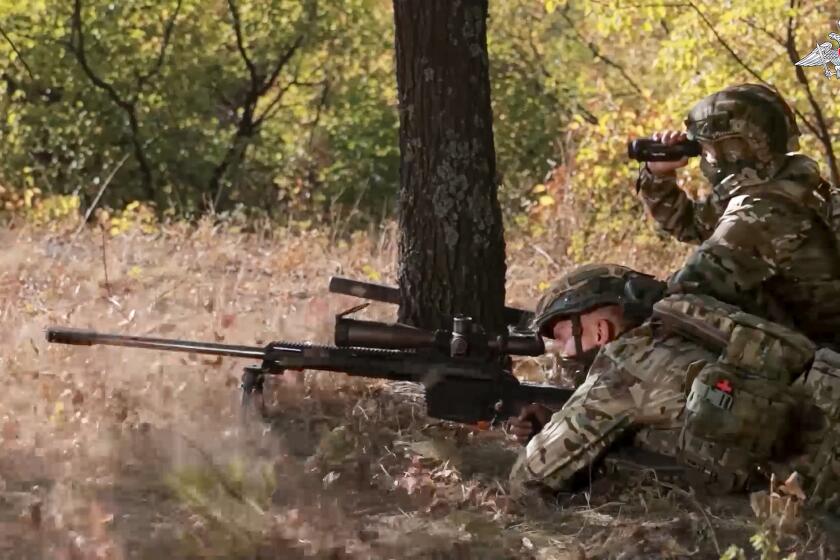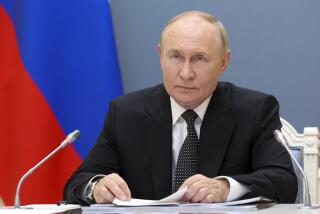Russia’s torture of Ukrainian civilians, prisoners a crime against humanity, U.N. panel says

UNITED NATIONS — Russia’s torture of Ukrainian civilians and prisoners of war is a crime against humanity, United Nations-backed human rights experts say.
Erik Mose, chair of the independent commission investigating human rights violations in Ukraine, told reporters Thursday that the panel previously described Russia’s widespread and systematic use of torture in Ukraine and Russia against civilians and prisoners, men and women, as a war crime.
“Our recent findings demonstrate that Russian authorities have committed torture in all provinces of Ukraine that came under their control, as well as in the detention facilities that the commission has investigated in the Russian Federation,” he said.
Russia’s U.N. Mission said it had no comment on the news conference or the report by the commission, which is appointed by the Geneva-based U.N. Human Rights Council.
Mose said the commission is an investigative body. He noted that Ukraine’s prosecutor general and the International Criminal Court are investigating possible war crimes and crimes against humanity in Ukraine and the commission may be asked for evidence.
Some parts of the world are particularly anxious over the prospect of a Trump victoy in next week’s presidential election
The commissioners examined reports from 41 detention centers, including makeshift centers and well-established facilities, in nine occupied regions of Ukraine and eight areas in Russia, Mose said.
He said the commission identified further evidence that violent practices common in Russian detention facilities were also practiced in similar facilities in Russian-occupied areas in eastern Ukraine, he said.
The commission also found additional evidence of the recurrent use of sexual violence as a form of torture, Mose said.
Detainees were subjected to rape, long periods of forced nudity, body searches and more, commission member Vrinda Gover said. She said most prisoners of war reported being subjected to sexual violence and suffering long-lasting psychological trauma.
Dmytro Lubinets said on Telegram that he sent letters to the United Nations and the International Committee of the Red Cross regarding the case.
Ukrainians in detention facilities in Ukraine and in Russia also reported “a brutal so-called admission procedure,” Gover said.
“Harsh practices designed to scare, break, humiliate, coerce and punish detainees were used routinely,” she said.
Surveillance cameras were used to watch detainees and severe collective punishment of detainees was imposed for every breach of rules, while “interrogations were accompanied by some of the most violent treatment documented,” Gover said.
Commission member Pablo de Greiff told reporters it now has evidence of the Russian organizational structure that coordinated and enabled torture in the detention facilities.
Where do Kamala Harris and Donald Trump stand on foreign policy areas such as Mexico, NATO, Ukraine, Israel-Hamas and the Gaza war, China and the Koreas?
“Moreover, the Commission now has evidence that the leadership of detention facilities or other higher ranking Russian authorities ordered, encouraged, tolerated or took no action to stop torture or ill treatment,” De Greiff said.
Mose said the commission’s investigation also found that the violent practices against detainees in Russia were transferred by Russian security forces and staff to detention facilities run by Russia in areas it occupied in Ukraine.
“Based on this body of evidence, we have concluded that the Russian authorities acted pursuant to a coordinated state policy of torturing Ukrainian civilians and prisoners of war,” he said. “Therefore, in addition to torture as a war crime, they also committed torture as a crime against humanity.”
Lederer writes for the Associated Press.
More to Read
Sign up for Essential California
The most important California stories and recommendations in your inbox every morning.
You may occasionally receive promotional content from the Los Angeles Times.













